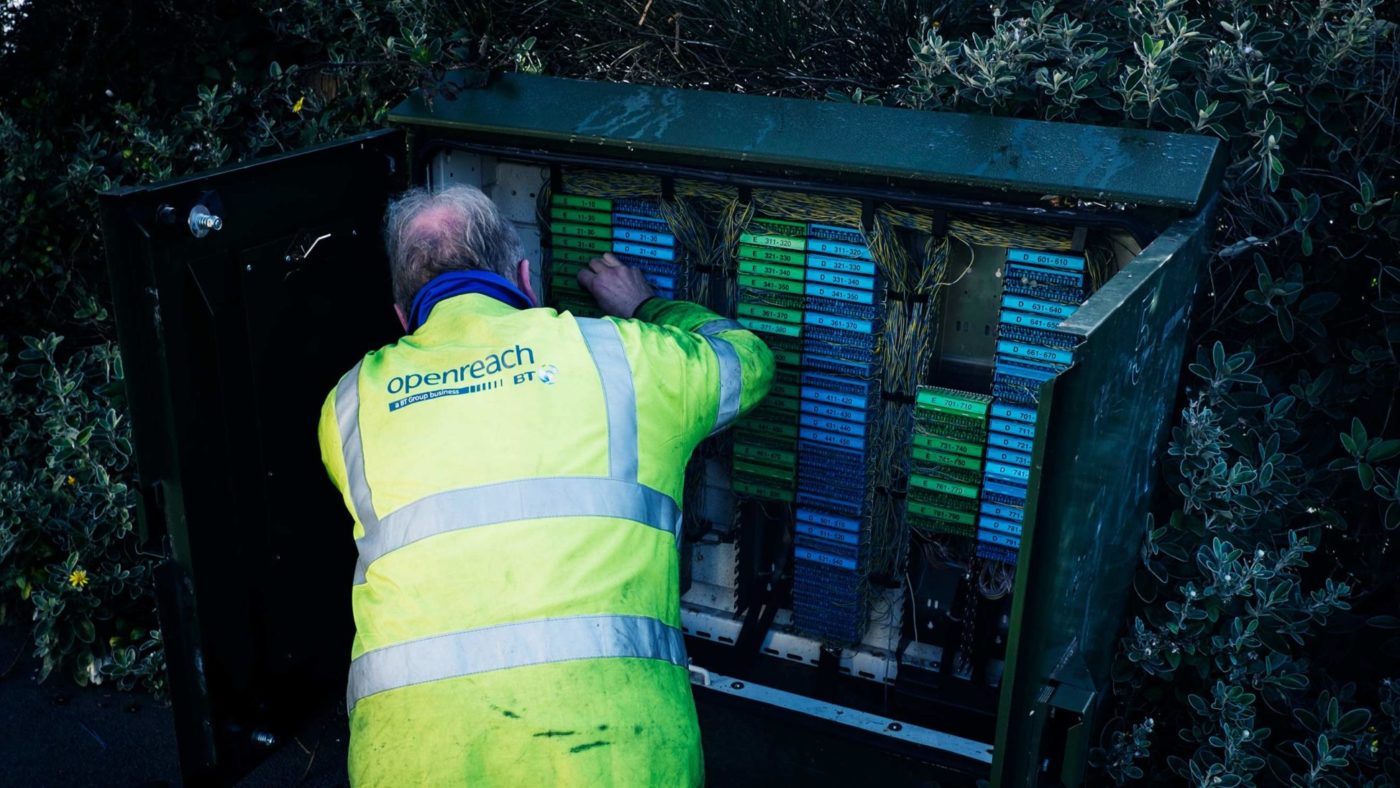In its latest gold-plated election offering Labour has announced a plan to provide free broadband to every home and business in the UK by 2030. A fine aspiration, you might well say – but the way Labour want to go about it are misguided for a whole host of reasons.
First, take the claim it will be “free”. Unless John McDonnell plans to literally steal people’s property, the cost of nationalisation will always be paid for through increased taxes or borrowing. It would improve debate hugely if the media started to refer to ‘free’ policies as ‘taxpayer-funded’ or perhaps even ‘debt-financed’.
So what would the cost be? McDonnell has floated a figure of £20 billion to nationalise parts of BT including Openreach. Even if we accept this figure (which the head of BT says is an underestimate), this is still a huge amount of money. Labour has claimed, typically, that this will be paid for by a new tax on tech giants such as Google and Apple. That would be a big mistake. At a time when we are about to leave the EU and face various economic uncertainties, we badly need to show that the UK Is open for business, not turn companies off by levying ever higher taxes.
As CapX editor John Ashmore has argued, we should be lowering taxes on businesses in order to encourage them to invest more money on equipment and research and development in order to increase productivity and boost economic growth.
What is more, it risks undermining one of the main benefits of Brexit, namely that the UK will be free to pursue a comprehensive free trade deal with the US. Corbyn and McDonnell might turn their noses up at such a deal, but increased trade between the UK and the US has the potential to deliver massive benefits for both countries. Introducing a tax which specifically targets US firms is likely to make such a deal incredibly difficult.
Then there is the fact that Labour denied that they had any plans to nationalise BT when asked about it during the summer. Of course, politicians are entitled to change their mind. However, it does make McDonnell look at best capricious and at worst somewhat sinister.
Was he simply lying at the time, or is he simply given to make dramatic u-turns for no obvious reason? Equally importantly, how can investors have confidence that the UK is a good place to do business with Corbyn and McDonnell in charge? Why would anyone put their time and money into building a business in the UK if it could simply be expropriated by the state?
We should also be concerned that Labour’s plans would effectively grant the government a monopoly on providing access to the internet. Would this grant the State the power to monitor what its citizens are viewing on the internet? Could it close down or restrict access to sites it disagreed with? That might sound a bit paranoid, but given the illiberal tendencies of many of those in Labour leader’s office, you can’t be too safe.
Nor do we need to make abstract ideological arguments against nationalisation, we can simply look at Britain’s experience as the ‘sick man of Europe’ when swathes of the economy were controlled by the state. As a nationalised company, BT was a disaster for consumers. Homes and businesses had to wait months to have a telephone line installed by BT, and then it was of very poor quality.
Privatisation, on the other hand, meant new players arriving into the market and competing both with BT and each other. That meant greater choice for consumers and ultimately higher quality and lower costs.
Now, things are far from perfect at the moment. For example, the UK performs poorly compared to other countries in terms of fibre rollout. Many communities around the country do not have access to a fast and reliable internet connection. What is more, even though big improvements have been made in terms of affordability, there are still some households who cannot afford to pay for broadband. As a result, they can become isolated and the children living there risk falling behind their peers in terms of educational attainment.
So, what should be done?
Labour is right to point to the fact that Openreach is problematic, but, as ever, Corbyn and McDonnell have misdiagnosed the problems and offered a solution that will only make things worse. One of the main reasons Openreach is so ineffective is that it effectively has a national monopoly on providing and maintaining the infrastructure to provide broadband. What is more, its connection with BT means that it has access to a large share of the market and also gives it real clout when dealing with Ofcom. Nationalisation would simply make a bad situation even worse.
What Openreach needs is real competition. The Government could take up the suggestion in a recent paper by Sam Bowman and Stian Westlake to break Openreach into 11 regional companies that are separate from BT. Each of these could then expand outside their region and compete with each other. This would lead to increased competition and, ultimately, more efficient rollout and a better quality of service.
There are real issues with broadband provision in the UK. What is more, it is important that every home and business has access to a fast and reliable internet connection. However, Labour’s nationalisation plans would be costly, damaging, and counter-productive.
Click here to subscribe to our daily briefing – the best pieces from CapX and across the web.
CapX depends on the generosity of its readers. If you value what we do, please consider making a donation.


